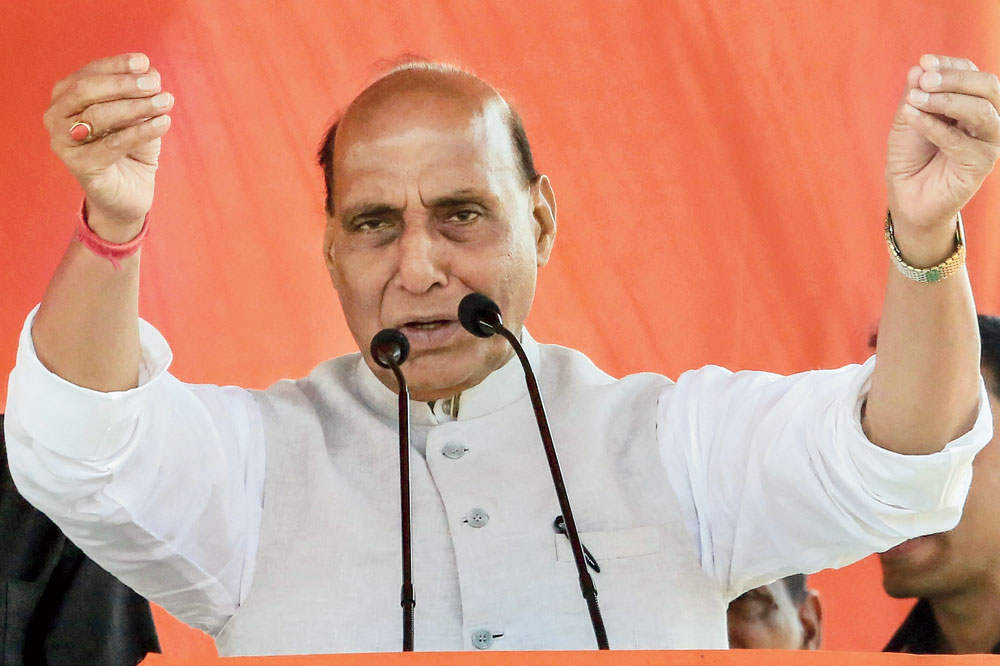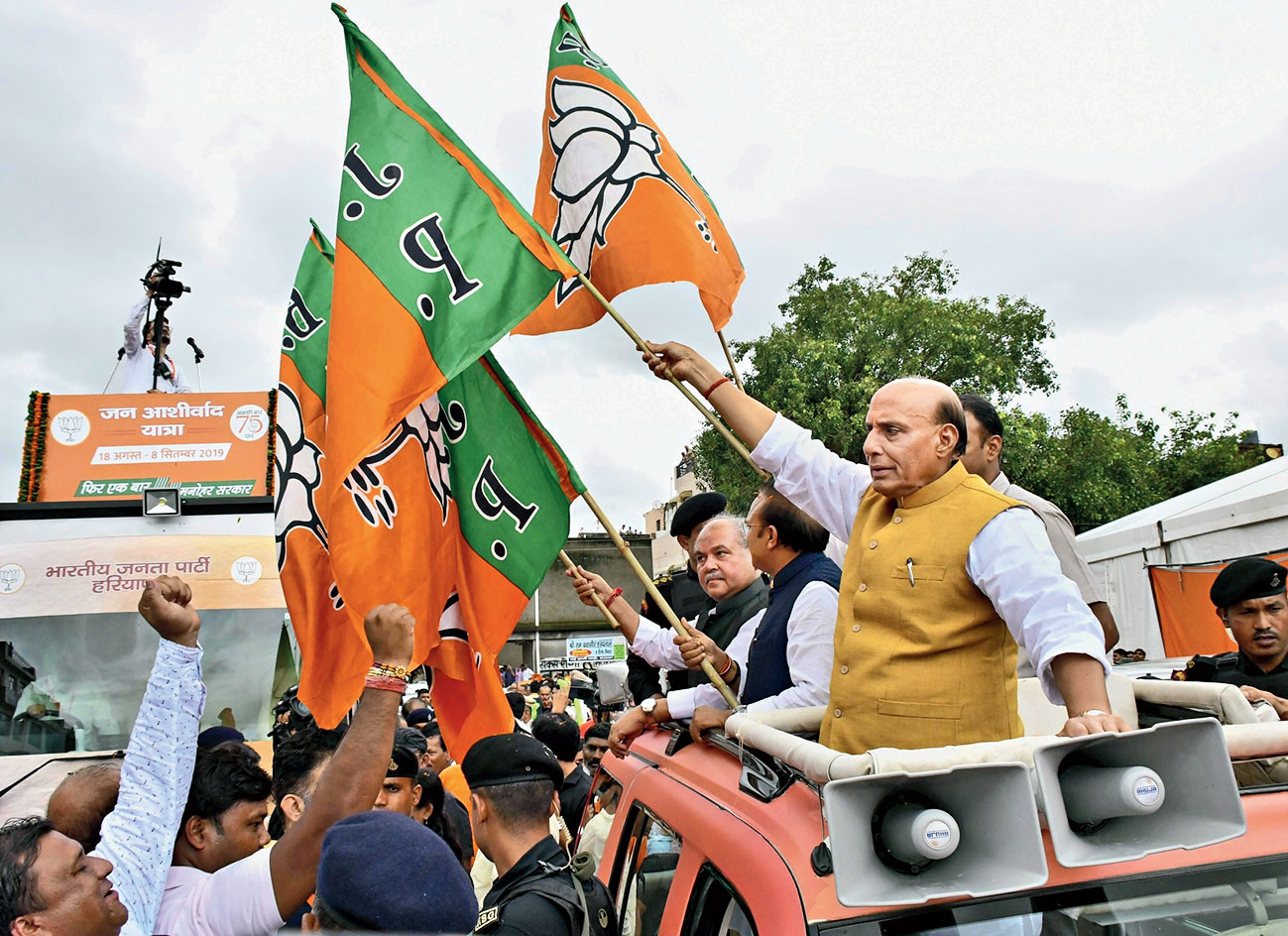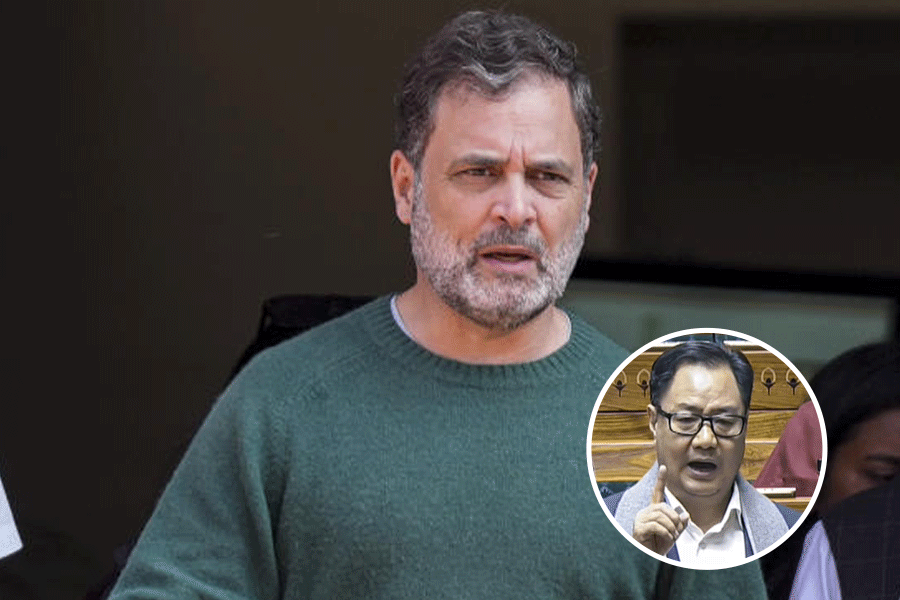Politics is often the fine art of posturing. There is reason to believe that the Union defence minister’s teasing statement that India’s no first use doctrine, one of the foundational pillars of the nation’s nuclear policy, would now be determined by ‘circumstances’ prevailing in the future could be yet another example of the Bharatiya Janata Party strutting its stuff. The introduction of such radical changes to nuclear policy must correspond to shifts in subcontinental geopolitics. Has India’s relationship with its two neighbours with a nuclear arsenal — Pakistan and China — taken a turn for the worse to such an extent that New Delhi is being forced to re-examine its NFU principle? It is improbable that deterioration in bilateral ties forced Rajnath Singh to drop hints about the revocation of the NFU policy. What is probable is that Mr Singh was responding to domestic political compulsions. Even though the BJP has been voted back to power with a commanding majority, it has found the going to be rather rough in recent times. The economy is in a shambles. There has been considerable concern in the international polity over the sparring between New Delhi and Islamabad after the BJP-led Central government stripped Kashmir of its special status. A bit of muscle-flexing always helps to deflect public attention from the clouds on the horizon. Mr Singh may have chosen to do so with his comment.
The problem, however, is that Mr Singh has ended up adding a fair bit of uncertainty to India’s traditional position on nuclear deterrence. India has been categorical about its commitment to being a responsible nuclear power. The cabinet committee on security, which had vetted the original draft nuclear doctrine with minimal modifications, stated unequivocally that India reserved the right to a massive retaliation in the case of a nuclear strike by an adversary. The element of restraint, which forms the crux of India’s nuclear policy, has paid handsome dividends to New Delhi, enhancing India’s acceptance in the global nuclear fraternity. Mr Singh’s apparent disregard for, or ignorance of, the importance of India’s self-imposed restraint in international diplomacy as well as to New Delhi’s persistent knock on the doors of the Nuclear Suppliers Group is rather unfortunate. But then, Mr Singh’s party has an inclination for sacrificing India’s international standing for domestic gain.












